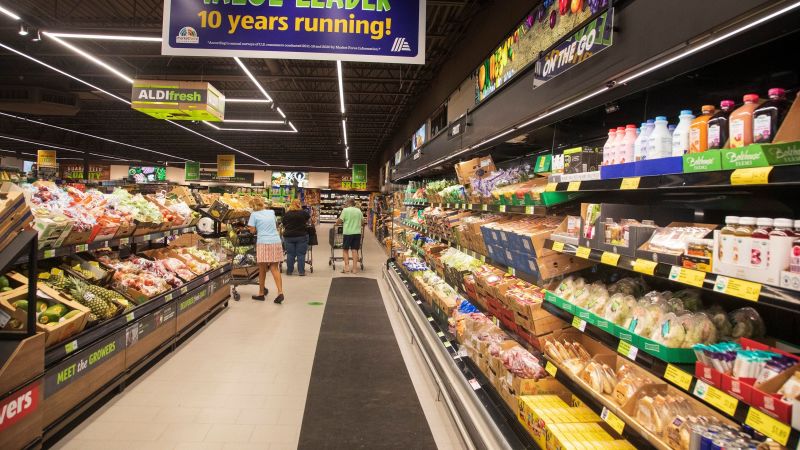While a mega merger between two of America’s largest grocery chains is snarled in regulatory red tape, a smaller European rival is eyeing a major expansion in the US.
Aldi said Thursday that it plans to open 800 new stores nationwide in a $9 billion expansion plan, with the discount grocer announcing in a press release it wants to bring the “lowest possible prices during a time when consumers are more focused than ever on saving money.”
The announcement from the chain, known for its low prices, comes as US shoppers are squeezed by higher food prices, with people cooking at home more as soaring prices make restaurant dining an unaffordable luxury for many.
Specific locations for the new stores weren’t revealed, but the German company said it wants to strengthen its “already strong presence” in the Northeast and Midwest, plus expand out West in Southern California, Phoenix and new cities, like Las Vegas.
Some of the 800 new locations will be store conversions from its now-complete acquisition of Winn-Dixie and Harveys Supermarkets, with a “significant number” of those locations — largely located in the Southeast — ditching their respective names and being remodeled into an Aldi.
Approximately 50 stores will be converted later this year, with a majority of those reopening under the Aldi name in 2025. However, the Winn-Dixie and Harveys Supermarkets names won’t completely disappear: Aldi said that a “meaningful amount” of locations will retain that branding.
Aldi’s expansion shows that it’s “throwing down the gauntlet to traditional grocery players,” according to Neil Saunders, retail analyst and managing director at GlobalData Retail, adding that it’s a “major challenge to the market which could cause significant disruption and pain for other retailers.”
Aldi has a low-cost business model and boasts that its prices are up to 50% cheaper than traditional supermarkets. At around 12,000 square feet, its stores are much smaller than a typical US supermarket of 40,000 square feet. More than 90% of the brands Aldi sells are its own private labels.
Also, with shoppers still dealing with inflation and high prices at the grocery store, the announcement is “fortuitous” for consumers, Saunders said, because people are increasingly shopping around for better deals and seeking out value-oriented outlets, like Aldi.
“Ultimately Aldi’s expansion is good news for US consumers. However, it will ramp up the competitive pressure in the grocery market,” Saunders said.
The chain first opened its first US store in 1976, but in recent years has invested more than $5 billion to remodel existing stores and has opened hundreds of new ones.
Aldi’s newest plan brings its store count to nearly 3,000 US locations, a notable expansion but still trailing against its rivals. If their merger is approved, Kroger and Albertson’s will have about 4,500 locations and Walmart, the nation’s largest grocer, has nearly 5,000.
Read the full article here




